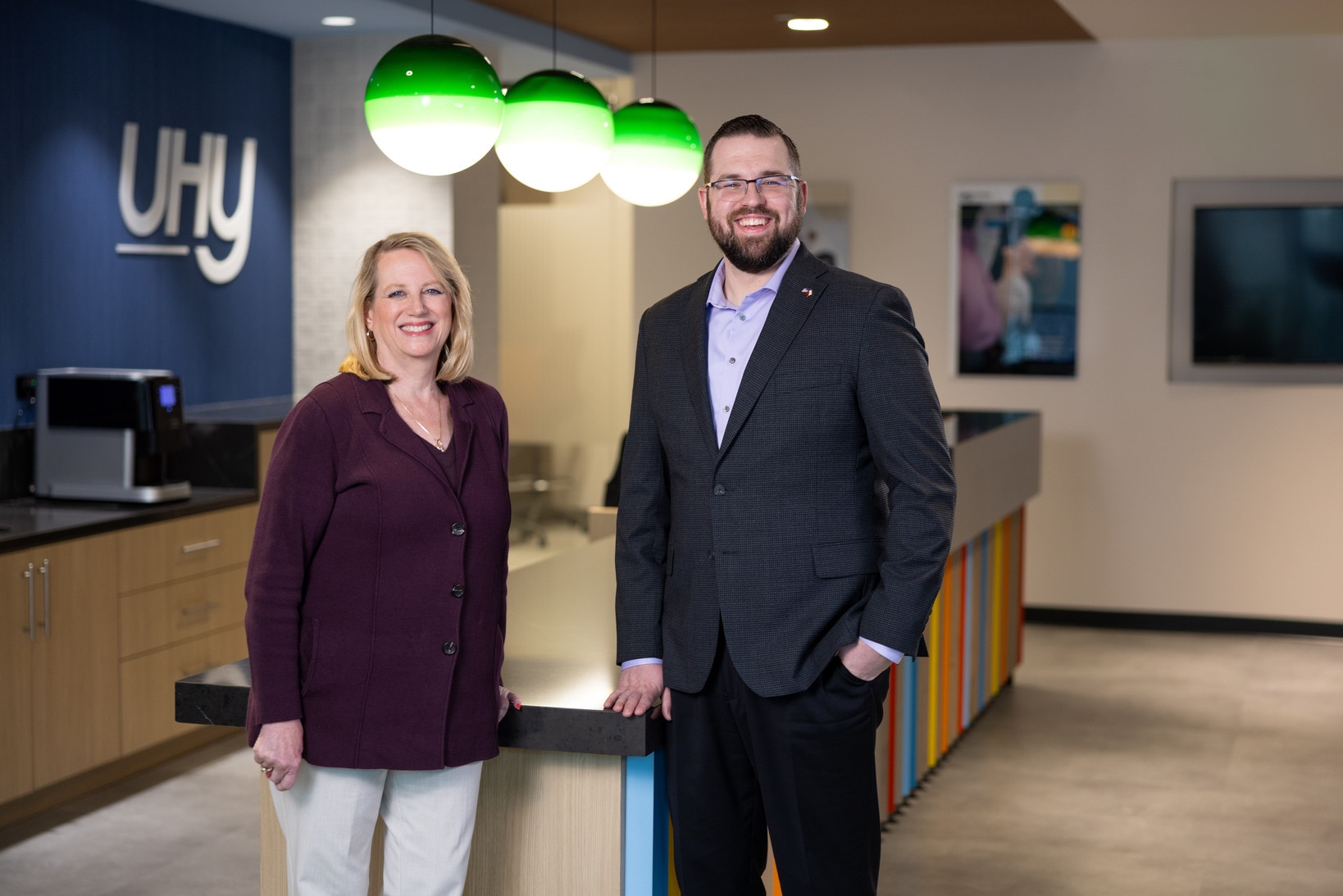The accounting and bookkeeping profession stands at a crossroads. While demand for financial expertise continues to surge, firms across the country face unprecedented challenges that threaten their ability to serve clients effectively and grow sustainably, according to Accounting Today's 2025 industry outlook. The traditional approach that worked for decades is no longer sufficient.
To become a true firm of the future, practitioners must master three fundamental pillars: team, technology, and service delivery. Success demands strategic integration of all three elements to create a competitive advantage for long-term growth.
Industry challenges reshaping the profession
The profession faces a convergence of challenges that experts describe as a crisis, according to The CPA Journal's 2024 industry analysis. Understanding these forces is crucial for developing an effective scaling strategy.
An aging workforce at the tipping point
The average age of employed accounting professionals is 52-53 years old, according to 2025 Invedus industry analysis, indicating a mature workforce rapidly approaching retirement. More concerning, approximately 75% of current CPAs are nearing retirement age, creating a demographic wave that threatens the profession's stability.
The shrinking talent pipeline
The pipeline of new accounting professionals has reached alarming lows. Recent industry analysis shows the accounting and auditing workforce has shrunk by more than 17% since 2020, with more than 300,000 professionals exiting the field, according to 2025 Mondial Software reports. Meanwhile, CPA exam participation continues to decline, with 2022 seeing the lowest number of exam takers since 2006.
This decline shows no signs of abating. The U.S. Bureau of Labor Statistics' 2025 employment projections show 136,400 openings for accountants and auditors will be needed each year through the next decade, while the talent pipeline continues to shrink.
Evolving client expectations
Today's clients demand more than traditional bookkeeping and compliance services. According to INAA's 2024 industry analysis, 80% of accounting firms are seeing increasing client demand for financial planning, business strategy, and technology consulting services. They expect comprehensive financial advisory support, real-time insights, and frequent communication, all while maintaining cost-effectiveness. Clients want a one-stop shop for their financial needs and partners who provide strategic guidance alongside core accounting services.
The old model of monthly bookkeeping reports and quarterly check-ins no longer meets expectations. Firms that cannot adapt risk losing clients to more agile competitors offering comprehensive, technology-enabled financial services.
The 3 pillars of scaling success
Given these industry pressures, how can firms not just survive but thrive? The answer lies in mastering three interconnected areas: team, technology, and service delivery. Success requires excellence in all three pillars working together seamlessly.
Pillar 1: Building the right team foundation
The traditional approach of hiring locally and training extensively is no longer sustainable given the talent shortage. Forward-thinking firms are embracing labor support solutions that enhance their existing teams.
The key is positioning additional support as team enhancement, not replacement. When properly implemented, your staff can focus on higher-value activities, such as client advisory services, complex problem-solving, and business development, while routine tasks are handled efficiently by skilled professionals.
Consider the time investment required for traditional hiring: recruiting, interviewing, onboarding, training, and inevitable turnover. For example, my firm, No Logo, specializes in providing seasoned & scalable accounting professionals, allowing them to add capacity quickly and predictably.
Pillar 2: Technology that enhances rather than replaces
The key to successful technology adoption lies in choosing solutions that enhance your team's capabilities rather than simply automating tasks. Tools such as Keeper represent this philosophy because it is purpose-built for bookkeeping professionals to increase efficiency and provide better client service, rather than attempting to replace human expertise entirely.
The most successful firms focus on technology that:
- Integrates seamlessly with existing workflows.
- Reduces time spent on routine tasks.
- Improves accuracy and consistency.
- Enables better client communication.
- Provides actionable insights through automation, KPIs, and benchmarking.
Avoid the common pitfall of adopting technology without proper implementation support. Many firms invest in powerful software only to see it underutilized due to inadequate training or poor integration into daily workflows.
Pillar 3: Service delivery that drives growth
The firms that thrive will transform from reactive bookkeeping providers to proactive financial advisors. This evolution requires the right team structure and technology platform to deliver consistent, high-value services.
By combining enhanced team capacity with efficient technology, firms can expand their service offerings to include regular financial reporting and KPI benchmarking, strategic business planning and cash flow forecasting, financial management consulting, technology implementation support, and specialized financial advisory services.
This service expansion creates multiple revenue streams while deepening client relationships, making your firm indispensable rather than interchangeable.
The implementation advantage: Why expertise matters
Successfully scaling your practice requires more than acquiring new tools and team members—it demands expertise in integration and implementation. This is where specialized consulting firms, like my firm, provide tremendous value.
The advantage of working with implementation specialists is speed and efficiency. Where it might take months to hire and train internal staff, properly integrated support can be operational within weeks. More importantly, you gain access to proven systems and processes refined across multiple client implementations.
The competitive advantage: Integration over isolation
The most successful firms of the future won't just excel in one area—they'll integrate all three pillars seamlessly. When team, technology, and service delivery work in harmony, firms can handle increased client volume without proportional increases in overhead, providing faster and more accurate service delivery. They will offer expanded services that command premium pricing, maintain consistent quality regardless of individual staff changes, and scale efficiently as opportunities arise.
This integration also creates a sustainable competitive advantage. While competitors might copy individual elements of your approach, replicating a fully integrated system is significantly more challenging.
Assess your current capabilities in team structure, technology utilization, and service delivery. Identify the biggest gaps and prioritize initiatives that will have the greatest impact on your ability to scale effectively.
The future belongs to firms that embrace change while maintaining their commitment to excellence. By focusing on the strategic integration of team, technology, and service delivery, you can build a practice that thrives in any environment.



